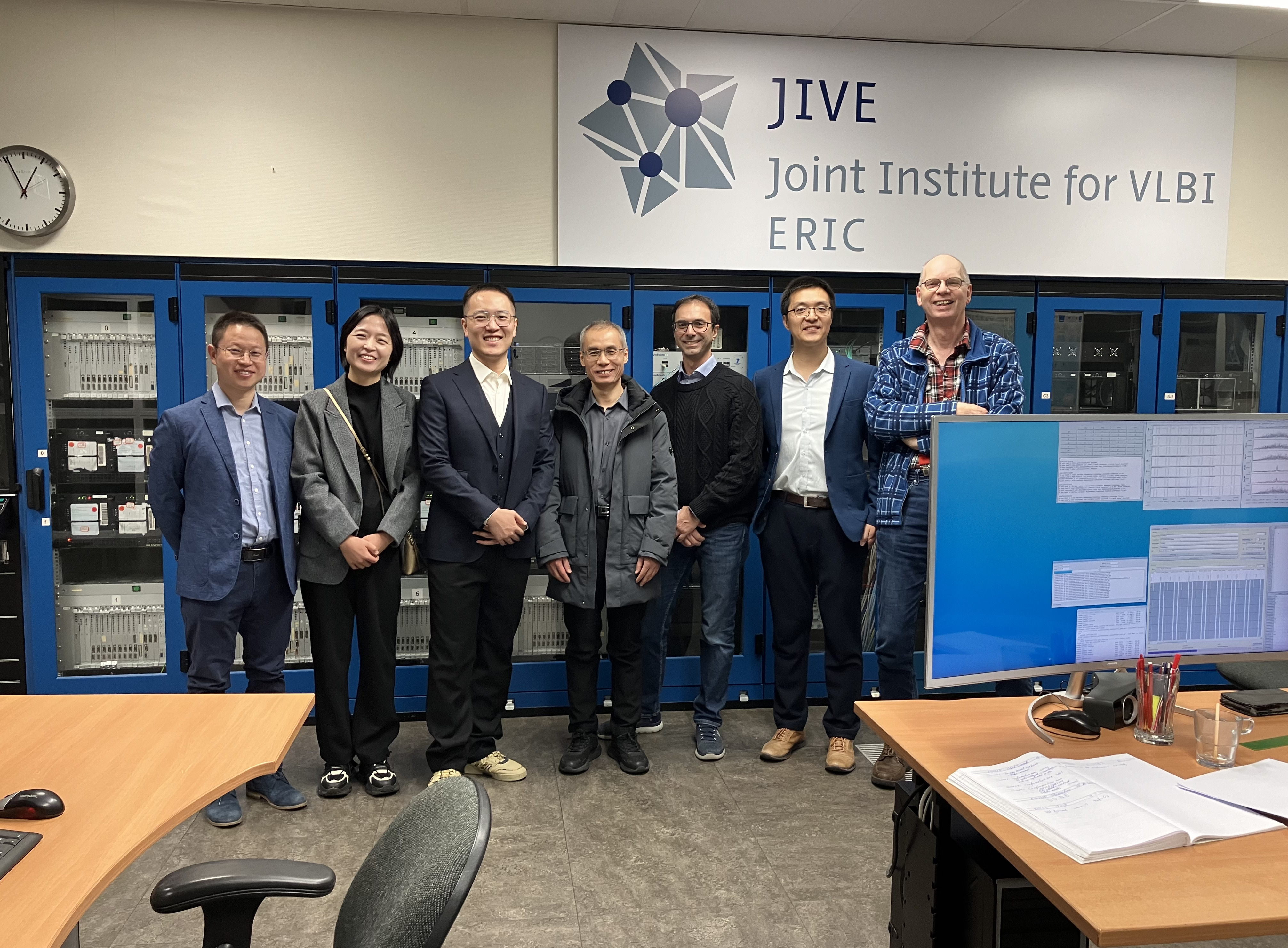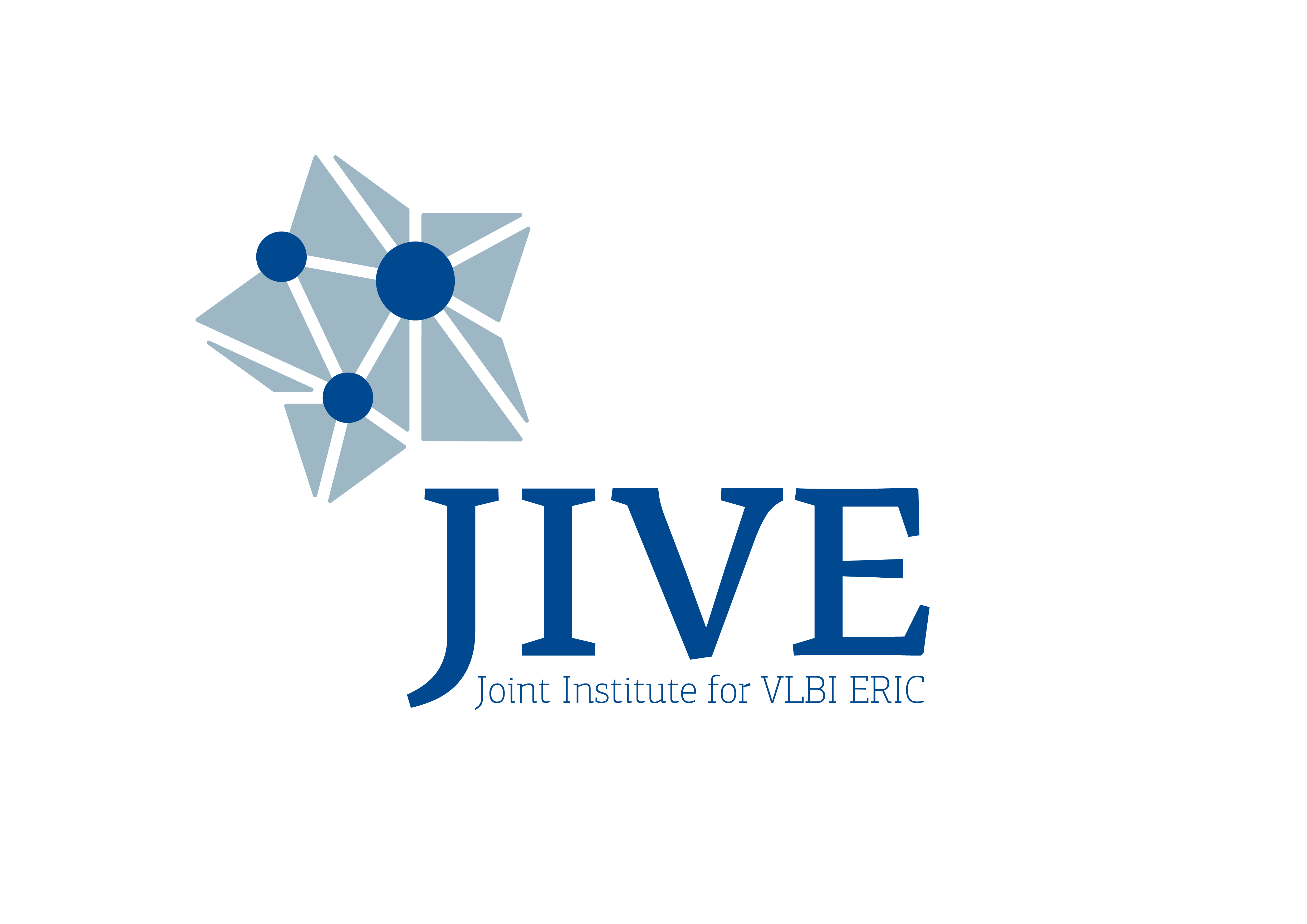
Photo: Ioanna Kazakou/JIVE
Last Tuesday, we welcomed a 5-member delegation from the Beijing Aerospace Control Center (BACC) in China for a 3-hour visit. JIVE works closely with China through its collaboration with the National Astronomical Observatories of the Chinese Academy of Sciences (NAOC).
The event included a productive exchange of expertise, engaging discussions on topics of common interest, and an exploration of potential synergies to strengthen collaboration. At the heart of these discussions was the implementation of Very Long Baseline Interferometry (VLBI) in space exploration, with a particular focus on the scientific applications of spacecraft tracking using near-field VLBI.
The visit was organised in coordination with Dr. Giuseppe Cimò, Head of Space Science and Innovative Applications at JIVE and Principal Investigator of PRIDE (Planetary Radio Interferometry and Doppler Experiment), one of the 12 experiments within the European Space Agency’s JUICE (JUpiter ICy moons Explorer) mission.
After a brief tour of the correlation control room, the BACC representatives shared their experience in applying VLBI to Deep Space Exploration. Their talks offered valuable insights into the history of China’s lunar exploration program and highlighted the critical role of the Chinese Deep Space Network (CDSN) in supporting these missions.
Dr. Giuseppe Cimò provided an overview of VLBI's role in space science, emphasising PRIDE and JIVE's contributions to these developments. Representing the PRIDE group at TU Delft, Assistant Professor Dominic Dirkx, PRIDE co-PI and Project Scientist, joined remotely to share details of his team’s research on flight dynamics and orbit determination. JIVE's scientific applications of VLBI technologies for spacecraft tracking within the PRIDE experiment were further elaborated by Dr. Mas Said, a post-doctoral researcher at JIVE. Alfonso Sanchez Rodriguez, an intern in JIVE's Space Science Group, complemented these discussions with information on the software development for near-field VLBI.
The visit concluded with a mutual commitment to facilitate more in-depth discussions and explore new avenues for collaboration.
